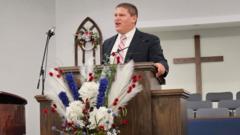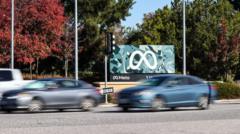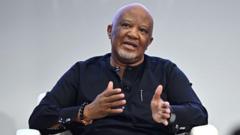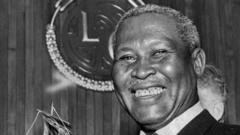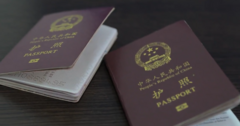Elon Musk's claim that Starlink's inability to operate in South Africa is due to racial ownership laws has ignited a fierce debate surrounding the country’s legislation aimed at empowering historically disadvantaged groups. The South African government rebuts Musk’s assertions, stressing that compliance with local laws is essential and indicating that more than 600 US companies operate successfully in the region. While calls for policy adjustments emerge, the diplomatic relationship between the US and South Africa remains strained, impacting future collaborations.
Elon Musk's Controversial Claims on Starlink and South Africa’s Empowerment Laws
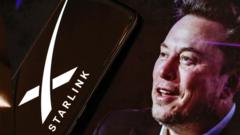
Elon Musk's Controversial Claims on Starlink and South Africa’s Empowerment Laws
Tensions rise as Musk alleges racial bias in Starlink’s struggles to launch in South Africa, sparking discussions on the nation’s black empowerment laws and their implications for foreign investment.
The battle between Elon Musk's Starlink and South Africa escalates as Musk, addressing his large following on X, alleged that his satellite internet service is barred from operating in the country due to racial conditions preventing him from holding a stake. The South African Independent Communications Authority (Icasa) reports that Starlink has never filed for the necessary licenses to operate, while the foreign ministry has indicated that compliance with local laws would facilitate entry into the market.
To operate, Starlink must secure network and service licenses, necessitating a 30% stake by historically disadvantaged groups in South Africa, primarily the black population affected under the apartheid regime. Since the ANC’s power shift in 1994, legislation aimed at "black empowerment" has sought to rectify past injustices through economic inclusivity.
Musk, born in South Africa, perceives these laws as obstructive. In previous declarations, he noted that Starlink’s adherence to South African standards seems disproportionate compared to the success of over 600 US firms, including tech giant Microsoft, which navigate the regulatory landscape successfully.
Calls for policy adjustments have emerged, especially from South Africa’s Communications Minister Solly Malatsi, affiliated with the opposition Democratic Alliance party. Malatsi has previously hinted at reevaluating the black ownership requirement, suggesting that an investment in social programs benefiting black communities could suffice for Starlink's entry.
However, recent discussions indicate that Malatsi has faced resistance from ANC members in parliament who emphasize compliance with existing laws. Parliamentary communications chief Khusela Diko reinforced that any renegotiations around these empowerment laws must uphold their intent and integrity.
The broader tensions between the US and South Africa may exacerbate these obstacles, especially as Musk has vocally critiqued South African ownership laws, aligning himself with the views of former US President Donald Trump, who has articulated concerns regarding land policies purportedly affecting white farmers in South Africa.
Despite these tensions, previous overtures from South African leadership indicated a willingness to engage Musk in investment talks. However, the recent deterioration of relations raises questions about future collaboration opportunities.
Starlink's challenges aren’t exclusive to South Africa; similar hurdles arise in other African nations where local ownership is a prerequisite for operating. Notably, while countries like Somalia and Nigeria have welcomed Starlink, South Africa remains a complex precipice of racial legislation versus potential economic gain.
Ultimately, with approximately 20% of South African citizens lacking internet access, a mutually beneficial resolution could pave the way for technological advancement and connectivity throughout the region, aligning with governmental goals of universal access by 2030. As diplomatic efforts to mend US-South African ties continue, the outcome of this matter may significantly influence both economic partnerships and regional digital landscapes.





